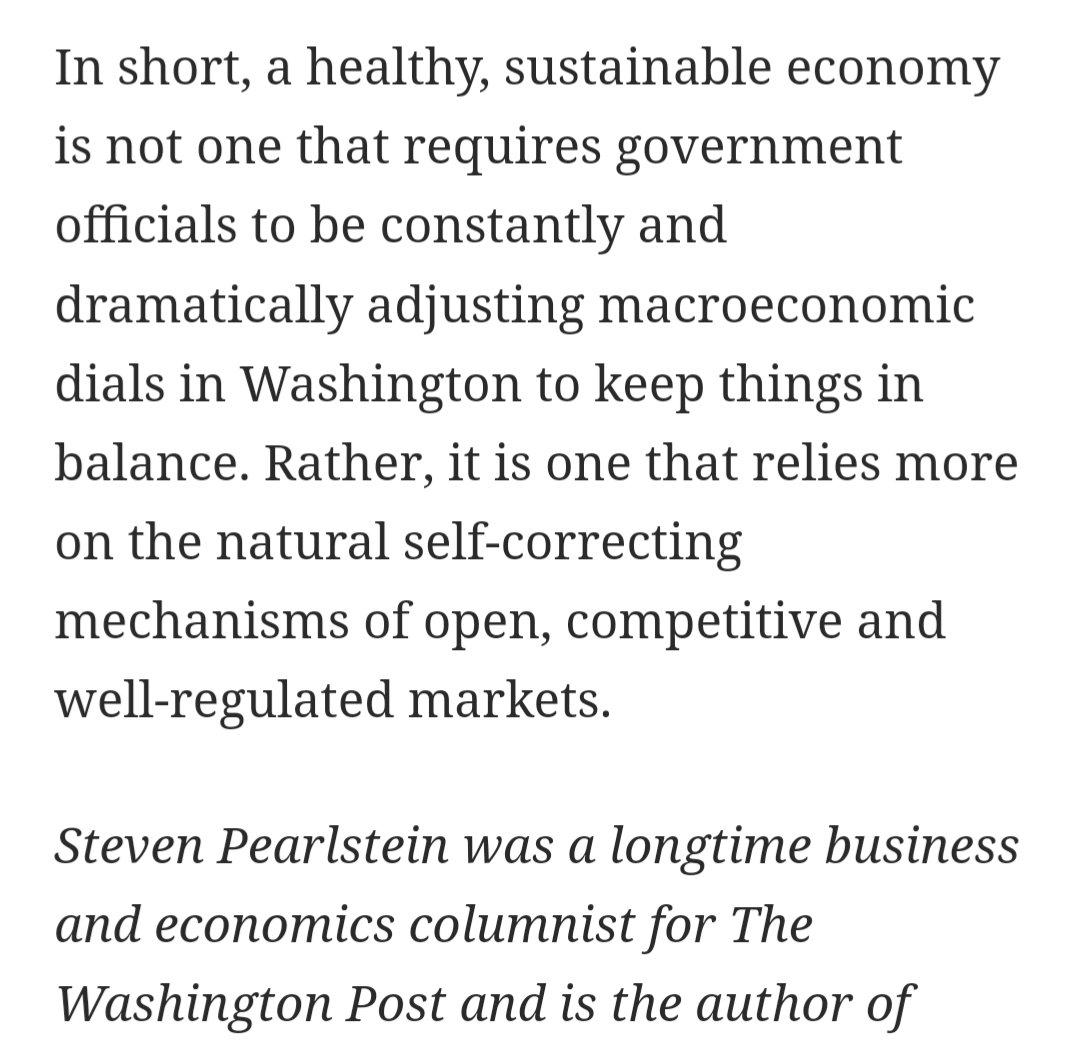
This🧵 includes some important historical institutionalist-type points about the setting of when a bunch of stuff got built during the New Deal era versus the (early) postindustrial timing of the post 1970s environmental movement.
Some random reflections...
Some random reflections...
https://twitter.com/JesseJenkins/status/1562106558443667456
Another HI point: the China trade shock and those that preceded it, contributing to much of capital, labor, and communities seeing less of a stake in material production. Goods show up on shelves, they're cheap, which is a lifesaver since wages are kept low + there aren't unions.
There is no pre-distribution game rooted in a productive economy, it's all post-distribution in a post-modern economy - trying to use a tenuous influence on the state to wrest money for social programs from the oligarchs and rentiers enriching themselves off of Ponzi schemes.
It's vital to ask what the costs are, and who is being asked to bear them, as the US reindustrializes. These construction/production costs are likely to be concentrated, while the decarbonization benefits diffuse.
But, for folks born since the decline of manufacturing jobs and unions, it's hard to see any of the *concentrated benefit* side from constructing and producing, which was what the Apollo Project tried to center in the 2000s.
cows.org/wp-content/upl…
cows.org/wp-content/upl…
That's a shame, because there *are* concentrated benefits - including for racial justice and equity - some of which I explore here.
https://twitter.com/toddntucker/status/1526644719463301127
If we want processes to speed up, and we don't want to repeat the never-compensated dislocations from globalization that have wrecked our democracy, front-loading and making visible the material benefits to communities is necessary.
aeaweb.org/articles?id=10…
aeaweb.org/articles?id=10…
Want a shorter permitting process? Show communities the money upfront (through union jobs, free heat pumps, community development $$, etc), and create ruinous penalty defaults for companies that cut corners on safety and pollution.
amazon.com/gp/product/B08…
amazon.com/gp/product/B08…
Humility is key. Shaming communities with few weapons at their disposal is counterproductive. Many- esp young activists -have never seen (even partly) functioning industrial economies. Asking them to take the leap of faith blindly and without guarantees does not show good faith.
Many of us 90s activist kids came of age when (industrial) unions were still strong, and actually funded a lot of student activism, whether the anti-sweatshop movement, Justice for Janitors, the Battle in Seattle, etc.
This gave us an early education in the importance of organizing + material production.
And awareness that, just bc the downsides of industrial production weren't felt in the US, that did not mean that some other community was not bearing them overseas.
amazon.com/Students-Again…
And awareness that, just bc the downsides of industrial production weren't felt in the US, that did not mean that some other community was not bearing them overseas.
amazon.com/Students-Again…
For many that came of age after, there was less organic way to have those values + experiences seep in. And for those that entered the labor market after the Global Financial Crisis, low wages and higher debt rightly were more salient.
Back to the HI point: what excites me about the present moment is that - unlike the 19th century or the 1930s - we have a chance to reindustrialize while doing the things right from an equity and worker power standpoint that the US got wrong before. & w/ an administrative state!
None of that happens automatically. It is only through daily struggle that the good + inclusive version of reindustrialization happens. That will take place in communities, on shop floors, in churches, in legislatures. IRA needs IRL to work!
One of the (many) nice things about the Inflation Reduction Act passing is that it opens an opportunity to reset politics away from - what will the 50-50 Senate give us - to what we demand/secure in specific projects in specific places in implementation. Real organizing is key.
Another nice thing is that the IRA promotes real organizing through feedback loops like more generous tax credits for green investors that follow high road labor strategies. Unions are already plotting out organizing plans to make use of these openings.
https://twitter.com/toddntucker/status/1555300877279297539
That gives capital a stake in land and labor - exactly what was severed in the neoliberal era post-1970s, and liberal era pre-WWII (but also never existed w/r/t many communities). An oldie but goodie.👇
penguinrandomhouse.com/books/206182/t…
penguinrandomhouse.com/books/206182/t…
Tl;dr - the IRA opens up the potential for a win set for all. But no guarantee, just as compensation from globalization never happened in the absence of serious industrial and community development policy. That comes next. END.
A bit more context for the thread in the convo with @JesseJenkins here:
https://twitter.com/toddntucker/status/1562498571626106880
• • •
Missing some Tweet in this thread? You can try to
force a refresh








